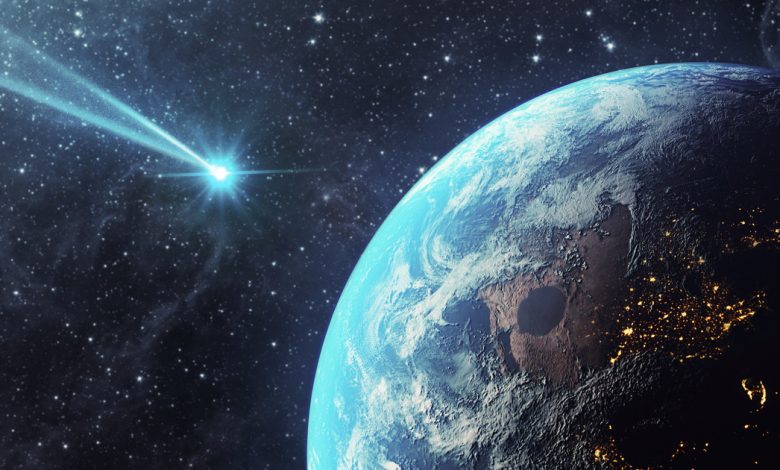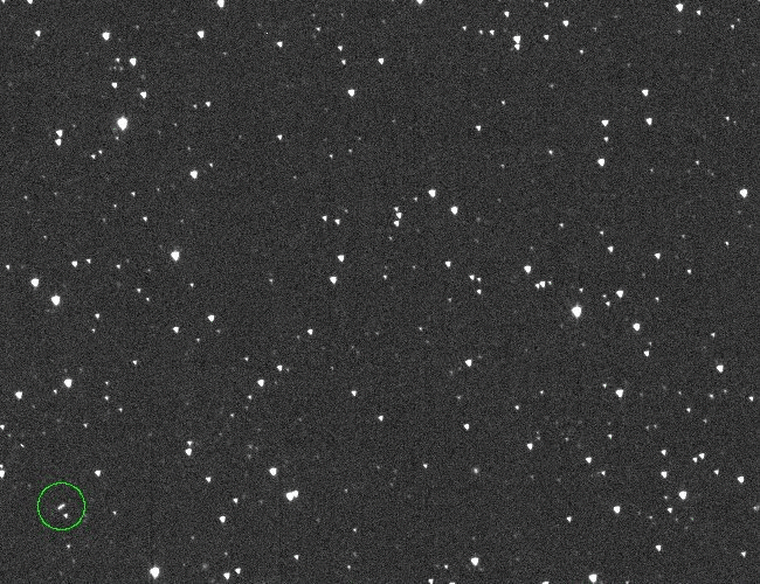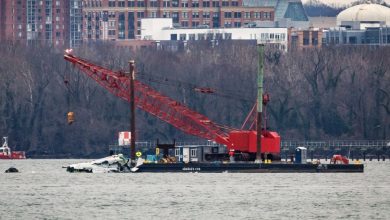3 asteroid watchers for China’s ‘planetary defense force’

HONG KONG — China is recruiting for a planetary defense force to combat the threat of asteroids colliding with Earth.
The successful candidates will be required to research tasks related to near-Earth asteroid monitoring and early warning systems, according to the job description for the three positions, among 16 posted last week by the State Administration of Science, Technology and Industry for National Defense (SASTIND), which oversees the country’s space activities.
Applicants must be younger than 35 and “maintain a firm political stance” in line with the ruling Chinese Communist Party and its leader, Xi Jinping, it said.
They are also required to have a background in astrophysics, Earth and space exploration technology, astronomy, optical engineering, or aerospace science and technology, with a master’s degree or higher.
SASTIND did not immediately respond to a faxed request for comment Tuesday.
The job postings come after the Dec. 27 discovery of 2024 YR4, an asteroid measuring up to 300 feet that crosses Earth’s orbit about every four years.
On Tuesday, NASA said there was a 3.1% chance that the asteroid would collide with Earth in 2032, up from earlier estimates of 2.3% and 1.2%. That is the highest probability any sizable space rock has had of hitting Earth in modern forecasting.
“It’s a small chance, but it’s still not insignificant, that it could collide with the Earth, and if it does, then it could create a huge amount of damage,” said Quentin Parker, director of the Laboratory for Space Research at the University of Hong Kong.
But 2032 is far enough away, he said, that the Chinese program and similar ones in the United States and other countries can work together to prevent that from happening.
While the word “force” can suggest military connotations such as the U.S. Space Force, Parker said what China is establishing is more of a team for detecting planetary threats and doing something about them, “including looking at international cooperation, which is something that, in my experience, at least the Chinese really like to try to do.”
The ads have been a major topic of online discussion among young people in China, who are grappling with high unemployment.
“The asteroid threat has created three new job opportunities,” one commenter joked on the Chinese social media platform Weibo.
Social media users also said the three recruits would be under a lot of pressure, trying to save their world on their own.
But Parker said they might have more company soon.
“The thing about China is that it can devote resources, significant resources, to a thing of this nature,” Parker said. “You start off with a team of 16, and five years from now it might be a team of 100.”
The planetary defense force is part of a robust Chinese space program that includes a space station, missions to the far side of the moon and a rover on Mars.

China has been a member of the International Asteroid Warning Network, a centralized hub of information coordinated by NASA, since 2018. In 2022, Wu Yanhua, deputy director of the China National Space Administration, said China would begin building a near-Earth asteroid defense system.
“We aim to detect these asteroids, develop defense strategies and, if necessary, find ways to change their orbits so they no longer pose a threat to humanity or the Earth,” Wu Weiren, the chief designer of China’s lunar exploration program, told Hongxing News in October.
In 2027, China is planning an asteroid-deflection test akin to the double asteroid redirection test successfully carried out by NASA in 2020. The Chinese test will be conducted on an asteroid called 2015 XF261, which is smaller than the 525-foot Dimorphos asteroid whose trajectory NASA disrupted by crashing a spacecraft into it.
In recent years, China has made “significant progress” in asteroid defense, with engineering projects and telescope construction in the works, Li Mingtao, an expert at the National Space Science Center of the Chinese Academy of Sciences, told the state-run China Science Daily newspaper in an interview published Feb. 10.
“In the future, we will not only strengthen the equipment configuration and performance, improve the operational models and algorithms,” Li said, “but also cultivate specialized talent in asteroid defense, contributing China’s wisdom and power to safeguard Earth’s safety.”
Jennifer Jett reported from Hong Kong, and Dawn Liu and Rae Wang reported from Beijing.




